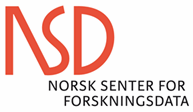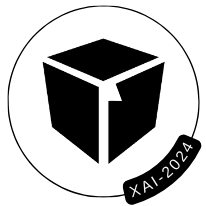2nd World Conference on eXplainable Artificial Intelligence
Call for special tracks

The organisers are pleased to invite proposals for special tracks to be held at the conference. These are specific thematic sessions to discuss and explore emerging areas of eXplainable Artificial Intelligence research with scholars and practitioners from industry and academia.
We encourage both researchers and industry practitioners to submit special track proposals. We strongly suggest involving organizers from different institutions, bringing different perspectives to the topic. We especially welcome special tracks that are niche but also may attract various types of contributions and may ensure rich interactions within a specific topic in XAI.
Researchers interested in submitting a a special track are invited to contact us in advance, by the deadlines, so we can assist in designing successful proposals. In particular, for special tracks with novel views and angles for eXplainable AI, we are happy to assist in further developing and implementing the ideas and check with the conference organizers their feasibility. Note that manuscripts submitted by selecting a special track are reviewed by the members of the programme committee of the main track and supervised by its chairs.
Submission instructions: The team of chairs must include at least a doctor (holding a PhD). Proposers must submit the following information: 1) an abstract describing the theme of the special track, with a clear link to xAI. A list of chairs, with their Google Scholar URLs, their profile pictures and the logo of their institutions, and if existing, a logo of a particular project they are working on. Also, a detailed list of topics, with concrete examples of application of existing xAI methods in their fields and/or potential novel directions for creating novel xAI methods. Tracks follow a first-come, first-serve principle, and overlaps will be avoided. This material must be sent to organisation@xaiworldconference.com
Submitting an article to an accepted special track follows the same procedure as the articles submitted to the conference. Similarly, it follows the same review process and publication procedure, as detailed below.
Submitted manuscripts must be novel and not substantially duplicate existing work. Manuscripts must be written using Springer’s Lecture Notes in Computer Science (LNCS) in the format provided here. Latex and word files are admitted; however, the former is preferred. All submissions and reviews will be handled electronically. The conference has a no dual submission policy, so submitted manuscripts must not be currently under review at another publication venue.
| Articles must be submitted using the easy-chair platform here. |  |
While registering on the platform, the contact author must provide the following information: paper title, all author names, affiliations, postal address, e-mail address, and at least three keywords.
The conference will not require a strict page number, as we believe authors have different writing styles and would like to produce scientific material differently. However, the following types of articles are admitted:
| full articles | between 12 and 24 pages (including references) |
| short articles | between 8 and 12 pages (including references) |
 | Full articles should report on original and substantial contributions of lasting value, and the work should concern the theory and/or practice of Explainable Artificial Intelligence (xAI). Moreover, manuscripts showcasing the innovative use of xAI methods, techniques, and approaches and exploring the benefits and challenges of applying xAI-based technology in real-life applications and contexts are welcome. Evaluations of proposed solutions and applications should be commensurate with the claims made in the article. Full articles should reflect more complex innovations or studies and have a more thorough discussion of related work. Research procedures and technical methods should be presented sufficiently to ensure scrutiny and reproducibility. We recognise that user data may be proprietary or confidential; therefore, we encourage sharing (anonymized, cleaned) data sets, data collection procedures, and code. Results and findings should be communicated clearly, and implications of the contributions for xAI as a field and beyond should be explicitly discussed. |
 | Shorter articles should generally report on advances that can be described, set into context, and evaluated concisely. These articles are not ‘work-in-progress’ reports but complete studies focused on smaller but complete research work, simple to describe. For these articles, the discussion of related work and contextualisation in the wider body of knowledge can be smaller than that of full articles. |
Appendixes and supplemental material
Appendixes and supplemental material must be placed within the article and the maximum amount of pages mentioned above. In other words, everything must be within 24 pages (for full articles) and 12 pages (for short articles).
Special track articles
The article submitted to the special tracks follows the submission procedure of the main track and must be submitted via easy-chair, as mentioned above. The types of articles admitted are full and shorter, as described above. The authors of an article to be associated with a special track must select the name of such special track in the list of topics in easy-chair, along with other relevant topics.
Authors commit to reviewing
By submitting to the conference, each senior author of a manuscript volunteer to be added to the pool of potential PC members/reviewers for the conference and may be asked to review manuscripts. This does not apply to authors who have already agreed to contribute to the conference in some capacity (e.g., as PC/SPC members of the main conference or special tracks, area chairs, or members of the organizing committee) and authors who are not qualified to be in the programme committee.
Ethical & Human Subjects Considerations
The conference organisers expect authors to discuss the ethical considerations and the impact of the presented work and/or its intended application, where appropriate. Additionally, all authors must comply with ethical standards and regulatory guidelines associated with human subjects research, including using personally identifiable data and research involving human participants. Manuscripts reporting on human subjects research must include a statement identifying any regulatory review the research is subject to (and identifying the form of approval provided) or explaining the lack of required review.
Submission and publication of multiple articles
Each author is limited to no more than a combined limit of 4 submissions to the main conference track, and authors may not be added or deleted from papers following submission.
Important dates
*All dates are Anywhere on Earth time (AoE)
Articles (main track & special tracks)
| Authors/title registration deadline on submission platform (easy-chair)*: | |
| Article upload deadline on submission platform (easy-chair)*: | |
| Notification of acceptance*: | |
| Registration (payment) and camera-ready* (upload to easy-chair): | |
| Article presentation instructions notification | June, 2024 |
| Accepted article presentation (at xAI-2024) | 17-19 July, 2024 |
| Publication (Springer CCIS series) | September/October, 2024 |
Late-breaking work & demos
| Late-breaking work & demo author/title/abstract registration on submission platform (easy-chair): | |
| Late-breaking work & demo article upload deadline on submission platform (easy-chair): | |
| Notification of acceptance: | |
| Registration (payment) & Late-breaking work & demo camera-ready (upload to easy-chair): | May |
| Late-breaking work & demo presentation instructions notification | June, 2024 |
| Late-breaking work & demo presentations (at xAI-2024) | 17-19 July, 2024 |
| Publication (planned with CEUR-WS.org*) | September/October, 2024 |
Doctoral consortium (DC) proposals
| DC Proposal author/title registration deadline on submission platform (easy-chair): | April, |
| DC Proposal uploads deadline on the submission platform (easy-chair): | April, |
| Notification of acceptance: | May, 3rd, 2024 |
| Registration (payment) | May, 7th, 2024 |
| DC presentation and meeting instructions notification | June, 2024 |
| Doctoral consortium meeting (at xAI-2024) | 17-19 July, 2024 |
| Publication (planned with CEUR-WS.org*) | September/October, 2024 |
Special track proposals
| Proposal submission (contact): |
Conference
| The World Conference on eXplainable AI | 17-19 July, 2024 |
The Peer-Review process
All articles submitted within the deadlines and per the guidelines will be subjected to a single-blind review. Authors can also opt-out to disclose their names. However, authors will not know the names of their reviewers. Papers that are out of scope, incomplete, or lack sufficient evidence to support the basic claims may be rejected without full review. Manuscripts that do not conform to the specified formatting style will be desk-rejected. A non-dual policy submission exists, and articles submitted parallel to another conference/journal will be desk-rejected. Furthermore, reviewers will be asked to comment on whether the length is appropriate for the contribution. Each submitted article will be reviewed by at least two appropriate committee members (main/special track programme committee, late-breaking work/demo/DC committee).
After completion of the review process, the authors will be informed about the acceptance or rejection of the submitted work. The reviewers’ comments will be available to the authors if they are not desk-rejected. In case of acceptance, authors must meet the recommendations for improvement and prepare and submit the definitive version of the work up to the camera-ready paper submission deadline. In case of failure to consider the recommendations made by the reviewers, the organizing committee, the chairs and the editors reserve the right not to include these works in any of the planned conference proceedings.
The article’s final version must follow the appropriate style guide and contain the authors’ data (names, institutions and emails) and the ORCID details. Submitted articles will be evaluated according to their originality, technical soundness, significance of findings, contribution to knowledge, clarity of exposition and organisation and replicability.
Code of Ethics
Inspired by the code of ethics put forward by the Association of Computing Machinery, the programme committee, supervised by the general conference chairs and organisers, has the right to desk-reject manuscripts that perpetuate harmful stereotypes, employ unethical research practices, or uncritically present outcomes or implications that disadvantage minoritized communities. Further, reviewers of the scientific committee will be explicitly asked to consider whether the research was conducted in compliance with professional, ethical standards and applicable regulatory guidelines. Failure to do so could lead to a desk rejection.
Each accepted and presented full, short paper (for the main and special tracks), presented either as an oral presentation or as a poster, will be included in the conference proceedings by Springer in Communications in Computer and Information Science, edited by the general/PC chairs. At least one author of each accepted paper must pay the related fees and register for the conference by the deadline. The official publication date is when the publisher makes the proceedings available online. This date will be after the conference and can take some weeks.
If authors want to publish their article OPEN ACCESS (upon a fee with Springer), please refer to this page.
 |  |
Indexing
 |  |  |
 |  |  |
 |  |  |

